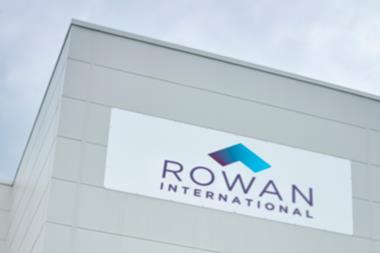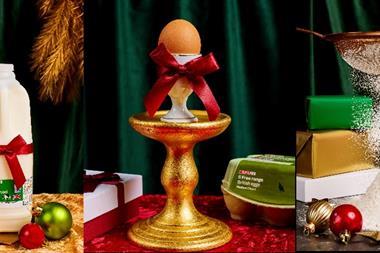The lead up to Christmas inevitably brings a test purchasing frenzy and this year is likely to be no different. But last month's news that 42 premises are having their alcohol licences reviewed after failing two test purchases (C-Store, November 17, p4) has put age-related sales in the spotlight.
Jeremy Allen of Poppleston Allen Licensing Solicitors warns of the far-reaching costs involved in failed test purchases. "Most of you will be aware that the person who makes the sale will normally be issued with a fixed-penalty notice, requiring payment of £80 to avoid legal proceedings. The situation for the licensee, however, is rather different.
"It is often the case that the licensee will be invited to an interview under caution by the police or Trading Standards, to discuss the adequacy, or otherwise, of staff training. In the worst cases, the police proceed straight to a summons, and in subsequent court proceedings it is open to the licensee to rely on due diligence defence."
Allen insists that the police and Trading Standards do not deliberately choose youngsters who look older than they are to carry out test purchases and points to the Code of Practice introduced to govern test purchasing operations, but reports from the Association of Convenience Stores paint quite a different picture.
ACS public affairs and communications manager Shane Brennan says: "While a Code of Practice on test purchasing exists for Trading Standards and the police, it's rarely followed. The problem is that process [introducing the Code of Practice] was incredibly unsatisfactory and it hasn't got the support of the enforcement community - they've rubbished it, so it's a lame document."
The Code of Practice dictates that the police and Trading Standards should not use anyone who is older than 16-and-a-half years of age; and their faces should not be obscured by hoods or hats. Says Jeremy Allen: "They are often encouraged to purchase items that might be attractive to teenagers - alcopops or cider. Many officers will also send these children in armed with a cluster of coins rather than a note or Switch card. Therefore, one would have thought the warning signs would be there."
But Brennan warns: "Local enforcement agencies are making up their own rules. The new tactic is that young people are being instructed to lie, so staff must make sure they check ID. We're also seeing groups of young people going in together, and waves of test purchases where three young people go in one after the other. We have even heard of some using fake ID cards as well. The rule of thumb is that where the police are involved, tougher techniques are used."
The ACS maintains that test purchasers should not be allowed to lie about their age, and should not be able to intimidate staff by arriving in gangs, which, it claims, is designed to entrap staff. It has also voiced concerns about the age of test purchasers. "We could argue with Trading Standards about using people who are 17-and-a-half, but while that is a concern, they are underage and we should be spotting it."
Be prepared
With test purchasing here to stay, making sure staff know how to handle age-related sales is paramount. "Test purchasing needs to be fair and consistent, but we've also got to focus on what retailers can do to prepare," says Brennan. "Training is the issue, but not just training in terms of making sure staff know the law; it's about helping retailers understand what their staff think about the issue and how they handle an attempted underage sale."
The Retail of Alcohol Standards Group (RASG), formed to allow businesses to co-ordinate their efforts in eradicating underage sales, has researched why mistakes are being made if procedures are in place. "Research found that some staff were making excuses for people, but why are they doing that? Training obviously needs to look at techniques for dealing with the challenge," says Brennan.
Two effective techniques are 'distancing' and 'lightening'. "Young men tend to rely on distancing - so they say 'it's the company's decision', or 'the government's decision' that they request proof of age, so things like staff wearing 'It's my job' badges could help," says Brennan. "Women tend to make light of the challenge, saying things like 'don't you look young'. Retailers need to talk to staff about how to deal with conflict, which is beyond existing levels of training."
Plenty of other support exists for retailers, including posters and pos for industry schemes such as No ID No Sale and Challenge 21. ACS members can also download the Responsible Retailing Guide at www.thelocalshop.com, which covers issues such as preventing underage sales, legitimate proof-of-age schemes and spotting fake IDs, and staff training.
Aside from the training issue, the ACS is continuing to push for stronger action by police and Trading Standards against other parts of the problem. "When a sale takes place the retailer could receive a penalty, but for the young person who commits the offence of buying alcohol underage, or the person who's buying on behalf of someone underage, there's minimum to no enforcement," says Brennan. "If we are to challenge the culture of underage drinking, we need stronger enforcement."
Brennan and the ACS are also calling for a better flow of information from enforcement agencies to retailers. "It's ridiculous that retailers aren't notified if they've passed a test purchase," he says. "The retailer doesn't know if they're doing things well so they're not able to reward staff, which is vital. There's a reluctance from the police to do more - it's a hassle for them to send out letters. And some agencies won't do it because they say that if a positive letter has been sent out to a retailer who later fails a test purchase, the retailer could use the positive against them in court."
While it's difficult for retailers to find out about imminent test purchasing stings, the ACS encourages c-stores to get involved with their local licensing department, which will hold consultation meetings on licensing policies and cover issues such as test purchasing and local authority rules.
Test purchasing is not going to go away, but the message to retailers is clear: operate a strict under-21 No ID No Sale policy, fully train staff to this procedure, and don't get caught out by fake ID - or risk the consequences.
Proof-of-age cards
Apart from a photo driving licence or passport, there are a number of credible photo proof-of-age cards young people can use, so don't get caught out by fake ID.
Valid cards must carry the Proof of Age Standards Scheme (PASS) hologram logo, and schemes involved include:
• Citizencard
• Connexions
• Portman Group
• Young Scot
• Validate
• Plus a number of local authority schemes.
Case study
Botterills Convenience Stores, the 45-store Spar retailer in Scotland, has been operating its own test purchasing scheme for two-and-a-half years. Operations director Brian Straiton says: "We initially thought we had good disciplines and procedures in place, but we wanted to test ourselves. Our initial reaction to the results was of shock and horror, but over the past two-and-a-half years we've made a big improvement."
At the beginning, the pass rate was 78% but in the last quarter, after 78 evening visits with eight fails and 67 day visits with six fails, the pass rate is at 90%. Every store is visited two weekend evenings and two weekdays every three months. It uses young-looking test purchasers aged between 18 and 21, and a fail is considered when a member of staff has sold alcohol without following the company's under-21 policy.
"Our test purchasers are given money to buy a product from the self-service area and at least one from behind the checkout, so they've got to ask for it," explains Brian. "That gives the sales assistant one last opportunity to ask for proof of age. We don't allow them to carry ID so the sales assistant has got to refuse.
"If they fail, they have to attend a disciplinary interview where
they get to justify their actions. They haven't broken the law, but they've broken our policy. We've only parted company with one member of staff - that was for a repeated failure. It's two strikes and they're out."
While Botterills comes down hard on those who fail, it rewards anyone who passes a test purchase with
a £5 voucher to spend in any of its stores.























No comments yet